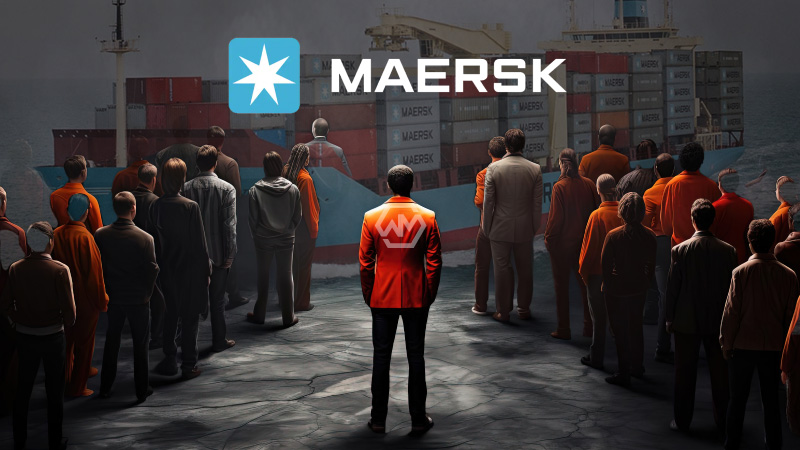- As per Bloomberg Knowledge, Maersk might need to hold on until 2025 preceding profit will develop, amid frail rates.
- Maersk hopes to save $600 million through the gig cost measures, as per an assertion on Friday.
- The Copenhagen-based organization will likewise put its 2024 offer buyback program under survey and decrease its gauge for capital use in 2023 and 2024.
A.P. Moller-Maersk A/S, a bellwether for worldwide exchange, is eliminating no less than 10,000 positions to protect its productivity in a transportation market that it sees contracting to some degree not exactly recently estimated.
The workforce decreases provoked by lower cargo rates and expanded contest in the marine vehicle, are in progress, with 6,500 of those positions previously disposed of, President Vincent Clerc said in a meeting with Bloomberg television’s Imprint Cudmore and Tom MacKenzie.
Maersk is Cutting 10,000 Jobs
Holder lines are confronting a sudden drop in profit after record benefits in 2021 and 2022 when appeal for customer products during the pandemic, combined with restricted vessel supply, drove cargo costs higher.
This year, worldwide financial development has lost steam and organizations are dealing with existing inventories as opposed to shipping new products to Europe and the US. Simultaneously, an oversupply of vessels is developing available.
Maersk’s profit before interest, expense, deterioration, and amortization fell more than 80% to $1.88 billion in the second quarter, meeting expert assessments.
Worldwide compartment exchange will presumably decline 0.5 percent to 2 percent this year, Maersk expressed, contrasted and its past forecast of a constriction of 1% to 4 percent.
The decline in the business is set to be more profound and longer than the market expects, Goldman Sachs examiners cautioned in an exploration note last month, rehashing a suggestion to sell Maersk stock.
Maersk, which transports around one-6th of the world’s holders, is ready for things to sharpen, trying to secure a significant number of its enormous clients on long haul contracts back when rates were higher to facilitate the effect of cargo rate unpredictability. The Danish organization is additionally spreading its concentration to cover land-based compartment planned operations, where net revenues customarily have been higher than adrift.



